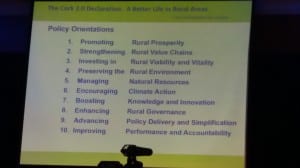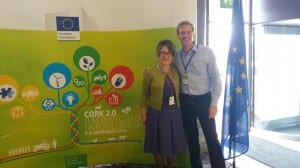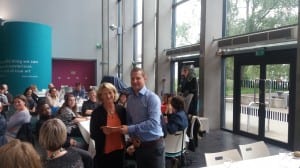I should begin this post by stating that I was genuinely undecided right to the last minute but I voted “leave” on the basis that I feel our economy can prosper outside of the EU. Whether that was a wise decision will depend upon our political leaders’ responses and the actions of our businesses. I should also add that this is a personal view and not necessarily the view of Lincoln International Business School.
So what opportunities are there for small rural businesses outside of the EU?
We have over 50% of the country who are willing to risk the economy to express their nationalistic views. With less than 12% of all UK business engaged in exporting, this could be seen as a real opportunity to promote “Buy British” and “Buy Local”.
If Sterling continues to fall, UK output will also be more competitive on world markets – especially those outside of the EU given that the Dollar has appreciated more strongly than the Euro. We already trade more profitably with the rest of the world so this gives businesses the opportunity to explore new niche markets and build relationships with emerging global powers. For this to succeed, we need trade leaders to promote UK plc, to negotiate strong trade deals and to provide the right investment to support innovations and infrastructure.
Businesses will still have to comply with international and EU legislation for trading standards if we want to export but if you are not an exporting business, some of the red-tape should be removed by the UK government – although we will need strong lobby groups to make sure that this happens.
Farmers: it is unrealistic to expect the same level of subsidy outside of the EU. For tenant farmers, this could help to push for reductions in rents. For all farmers this should encourage strategic reviews of their activities. Look at the New Zealand scenario since the removal of subsidies – they have a lot of enterprising rural business people combining food production with a range of other profitable activities. The shock of subsidy withdrawal was not pleasant, but we have time to plan for a gradual reduction of subsidies and we can lobby for subsidies to be targeted towards those farm activities and products that are most in need of support.
More broadly, we need to lobby to retain a rural economy support programme but it is not hard to imagine that we can design something better than the European LEADER programme which is poorly resourced, bureaucratic and little known across rural England.
None of this will be easy, but anyone who has studied business, and especially Joseph Schumpeter’s theories of creative destruction, will know that change and uncertainty creates new spaces for innovation and new business opportunities. The challenge is to be a pro-active “creator” as those lagging behind the curve could face “destruction”. And a free business idea for everyone – who will set up the first “Brexit Strategy Consultancy”?!!




